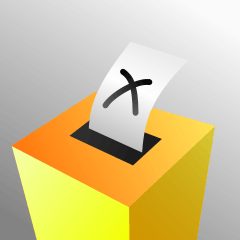Constitutional Liberalism
| Part of the Politics series |
| Democracy |
|---|
| Basic forms |
| Variants |
|
| Politics portal |
| Part of the Politics series | ||||||||||
| Basic forms of government | ||||||||||
|---|---|---|---|---|---|---|---|---|---|---|
| Power structure | ||||||||||
| Power source | ||||||||||
|
||||||||||
| Politics portal | ||||||||||
| Part of a series on |
| Politics |
|---|
 |
|
Academic disciplines |
|
Organs of government |
|
Related topics
|
|
Subseries |
| Politics portal |
Constitutional liberalism describes a form of government that upholds the principles of classical liberalism and the rule of law. It differs from liberal democracy in that it is not about the method of selecting government.[1] The journalist and scholar Fareed Zakaria explains that constitutional liberalism "is about government's goals. It refers to the tradition, deep in Western history, that seeks to protect an individual's autonomy and dignity against coercion, whatever the source -- state, church, or society."[2] Democracy is becoming more common around the world. Freedom House reported that in 2013 there were 118 electoral democracies. Many of these countries are not constitutionally liberal and can be described as illiberal democracies.[3][4]
See also
- Totalitarianism
- History of democracy
- Democratic ideals
- Social liberalism
- Classical liberalism
- Liberal democracy
- Illiberal democracy
- Constitutionalism
References
- ↑ Shapiro, Nathan. "It's Not Democracy You Want...It's Liberalism". Retrieved 9 February 2014.
- ↑ Zakaria, Fareed. "The Rise of Illiberal Democracy". Foreign Affairs. Retrieved 9 February 2014.
- ↑ "Freedom in the World 2013". Freedom House. Retrieved 9 February 2014.
- ↑ Plattner, Marc. "Liberalism and Democracy: Can't Have One Without the Other". Foreign Affairs. Retrieved 28 February 2014.
Further reading
- Zakaria, Fareed (2007). The Future of Freedom: Illiberal Democracy at Home and Abroad (Revised Edition). W.W. Norton and Company. ISBN 978-0393331523.